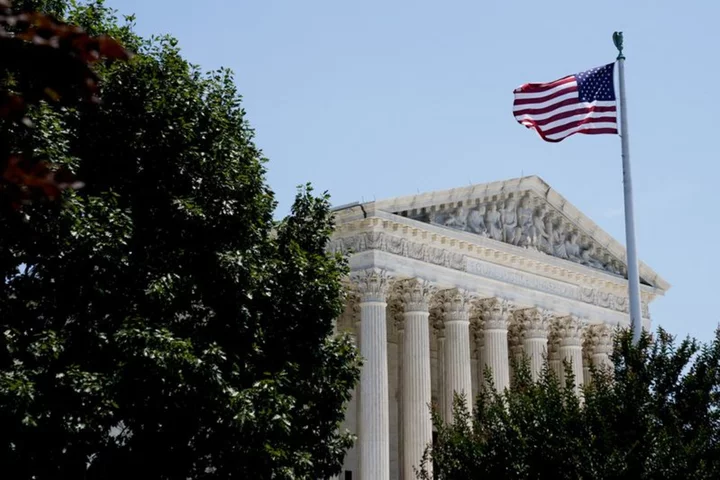By John Kruzel
WASHINGTON The U.S. Supreme Court on Friday decided - for now - not to weigh in on the legality of judges increasing prison sentences for criminal defendants based on charges for which they were acquitted - a practice that critics have said violates basic constitutional rights.
The justices turned away appeals in cases that would have given them an opportunity to prohibit the consideration of "acquitted conduct" in sentencing decisions in criminal cases.
Four justices on Friday said the issue raised important questions but signaled they would await pending action by the U.S. Sentencing Commission, a bipartisan panel responsible for crafting U.S. criminal sentencing policy, before addressing the issue.
The commission in January proposed amending federal sentencing guidelines to prohibit judges from considering a defendant's acquitted conduct with only narrow exceptions. The commission has not yet voted on the measure, which has been opposed by U.S. Justice Department.
Liberal Justice Sonia Sotomayor said that "this court may need to take up the constitutional issues presented" if the commission does not act on it soon. Three conservatives - Justices Brett Kavanaugh, Neil Gorsuch and Amy Coney Barrett - made a similar statement.
At issue is whether this practice violates the U.S. Constitution's Fifth Amendment due process protections and Sixth Amendment right to a trial by jury.
Numerous criminal defendants have asked the justices to revisit a 1997 Supreme Court ruling that said a jury's verdict of acquittal does not prevent a sentencing judge from considering conduct underlying an acquitted charge.
Juries must determine whether a charge has been proven beyond a reasonable doubt - the burden of proof in U.S. criminal cases - in order to convict a defendant. But judges during sentencing can consider the facts underlying acquitted charges if they were proved by a preponderance of the evidence at trial, a lower burden of proof matching that used in civil cases.
For example, if a defendant was convicted of armed robbery but acquitted of kidnapping, judges could consider increasing the sentence for armed robbery if they believe the facts underlying the kidnapping charge were demonstrated by a preponderance of the evidence.
The National Association of Criminal Defense Lawyers has said the practice undermines the role of the jury in criminal trials and violates the due process rights of defendants.
Some current and former Supreme Court justices have questioned whether judges should be permitted to extend a defendant's prison sentence based on acquitted conduct.
(Reporting by John Kruzel; Additional reporting by Nate Raymond in Boston; Editing by Will Dunham)









